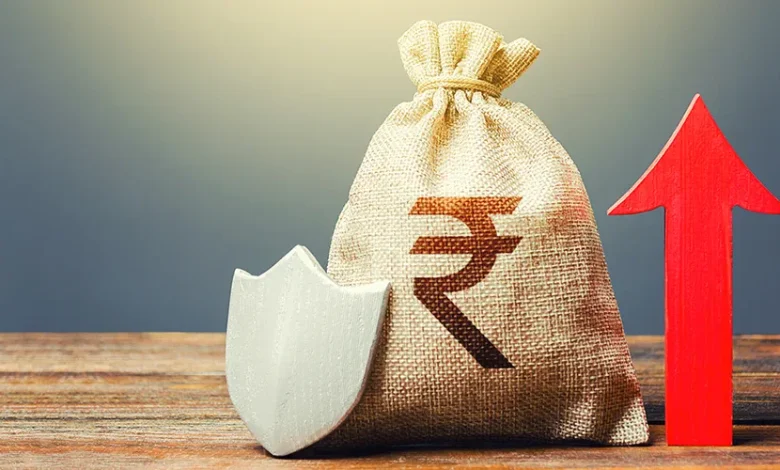What is a fixed deposit, and how does it work?

There are so many investment options out there these days that it can be hard to pick the right one. You might find a Fixed Deposit (FD) to be the best way to grow your savings safely while earning steady returns. What is a Fixed Deposit, though, and how does it work?
Table of Contents
It’s really not that hard: How Fixed Deposits (FDs) Work
A Fixed Deposit, which is also called a Term Deposit, is a type of deposit that banks and non-banking financial institutions (NBFCs) offer. It lets you invest a large amount of money for a set amount of time, usually between seven days and ten years. The bank gives you a fixed interest rate in exchange for keeping your money in the account for this long. This rate is based on the amount you deposit, the length of time you choose, and the current interest rate at the bank.
Fixed deposits have a lot of pros.
Returns Promised: FDs offer a fixed interest rate, unlike market-linked investments whose returns change over time. This gives you peace of mind because you know exactly how much your investment will grow by the time it matures.
Safe and sound: FDs are a safe way to invest your money. Deposits of up to ₹5 lakhs per bank account in India are protected by the Deposit Insurance and Credit Guarantee Corporation (DICGC), which is a government agency.
FDs have a lot of different terms so you can choose the one that best fits your financial goals. You can pick a deposit that lasts a few days or a deposit that lasts for many years.
Adding to your interest: You can choose for your FD interest to be added to itself. Because of this, the interest you earn is added to the principal amount on a regular basis, which boosts your overall returns even more.
Loan Facility: Some fixed deposits let you borrow money against the deposit, which can come in handy in an emergency. Most of the time, though, the loan amount is limited to a certain percentage of the principal deposit. You can also get a personal loan on WhatsApp if you need cash quickly.
FDs usually have higher interest rates than regular savings accounts, which means they give you better returns. This lets you get a better return on the money you don’t use right now.
What does a fixed deposit do?
Here’s how FDs work, broken down step by step:
1. Open an FD account: To open an FD account, you can go to a bank branch or use their online banking service. You will have to pick the deposit amount, the term, and the interest payment option (monthly, quarterly, or reinvestment).
2. Putting Money in: Once your account is open, put in the agreed-upon amount of money. You can deposit cash, write a check, or send the money online.
3. Figuring Out Interest: The bank will figure out the interest on your deposit based on the rate and length of time that were agreed upon ahead of time.
4. Maturity: When the due date comes around, you’ll get both the principal amount and the interest that has been added. You can either take out the whole amount or put it back into the account for another term.
When picking an FD interest rate, things to think about are: To get the best returns, compare the FD interest rates that different banks and NBFCs offer.
Tenure: Choose a tenure that fits with your money goals. There may be fees for withdrawing money early.
Bank or NBFC Reputation: Choose a bank or NBFC with a good reputation and a history of good finances. Premature Withdrawal Penalties: Know the fees that come with taking money out of your FD before it matures.
The interest you earn on a fixed deposit may be taxed as income.
Other Options Besides Fixed Deposits
FDs are the safest way to invest your money, and they’re also very easy to use. Everyone knows that something can’t work for everyone. Something that works well for you might not work so well for someone else. FDs are stable, but they might not always give you the best returns. There are many ways to invest your money if you are okay with taking certain risks. You might want to think about these other investment options:
RDs, or recurring deposits, are: RDs let you invest a set amount of money on a regular basis, which helps you develop good saving habits.
Debt funds are mutual funds that buy government and corporate bonds. They may have higher returns than fixed deposits (FDs), but they also come with a little more risk.
Equity Investments: Putting money into stocks directly or through mutual funds can give you higher returns, but it also comes with a higher risk because the market can change quickly.
In conclusion
Fixed deposits are a safe and flexible way to invest that is perfect for people who want to know exactly how much money they will make and protect their principal. They help you save money and give you peace of mind at the same time. But to make smart financial choices, it’s important to look at more than one FD rate, read the terms and conditions, and compare them to other investment options.
Want to Get Cash Quickly?
Even though FDs are stable, there may be times when you need to get to your money right away. In those cases, you might want to look into options like instant personal loans online. Application for these instant loan approval can be done easily online, and you can get the money right away. Remember that the interest rates on instant loans are usually higher, so only use them when you really need the money quickly.




